UNESCO heritage site located in war zone
With rifles slung over their shoulders and their fingers forming a “V” for victory, RSF militiamen in Sudan excitedly pose in front of the ancient Naga ruins in a video posted on social media.
Naga is located 200 km northeast of Sudan's capital Khartoum and not far from the banks of the Nile River, in an area once considered the cradle of human civilization.
The ancient city was founded around 250 BC as the royal residence of the Kingdom of Meroe, and contains many temples and palaces. It once served as a bridge between Mediterranean and African civilizations.
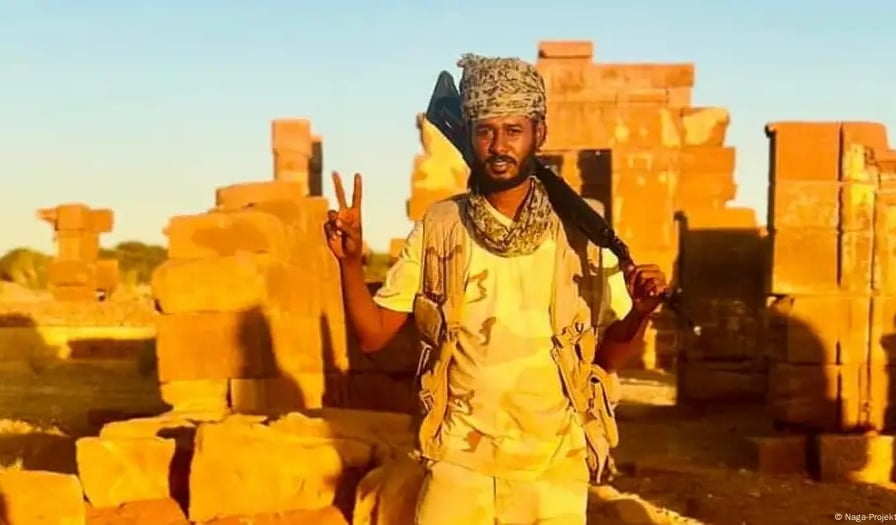
An RSF soldier takes a photo in front of the Musawwarat temple located in the UNESCO site in the ancient city of Naga. Photo: DW
Three temples at the site have been excavated and restored by archaeologists since the 1990s. Fifty other temples, palaces and administrative buildings, as well as cemeteries with hundreds of tombs, remain hidden under the rubble.
But now Naga, a UNESCO World Heritage site, is caught in another Sudanese civil war. Since April 2023, rival generals have been fighting for power in this resource-rich but impoverished country.
De facto leader Abdel-Fattah al Burhan and the Sudanese army he controls have been opposed by a militia called the Rapid Reaction Forces (RSF) led by former deputy Mohammed Hamdan Dagalo. The RSF now controls Naga.
The city has seen several bombings by government forces targeting RSF units stationed in Naga. And there are fears that further fighting in Naga could cause irreparable damage to many of its priceless heritage sites.
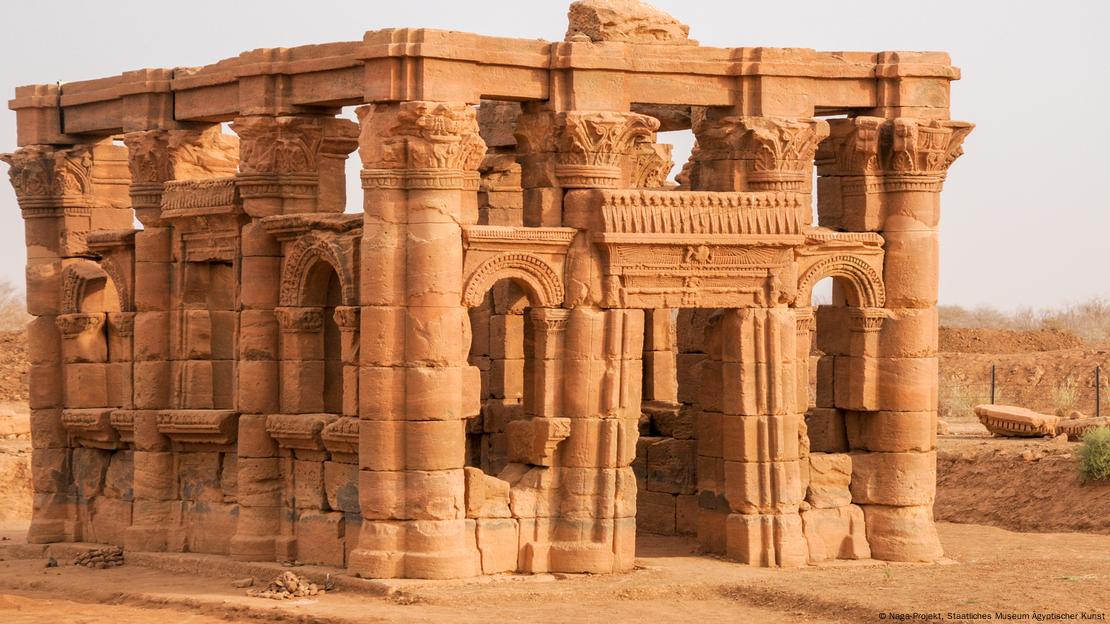
The Hathor Chapel, a 1st-century temple in Naga, is a fusion of Greek/Roman and Egyptian architectural influences. Photo: DW
That is a matter of the future. In the immediate future, the risk of widespread fighting in Naga is seriously affecting archaeological work. “The situation is really bad,” said Arnulf Schluter, director of the Museum of Egyptian Art in Munich, worried about the ongoing archaeological project in Naga. “Most of the excavators have fled, our camp has been broken into and tires have been stolen.”
Mr Schluter also expressed disappointment that the Sudan Antiquities Authority – the body responsible for the country’s World Heritage sites – had lost many documents due to the conflict. “Their offices in Khartoum were looted,” he said.
'Threat to culture' in Sudan
According to the Tahir Institute, a non-governmental organization specializing in Middle East politics , the control of the Naga region by General Mohammed Hamdan Dagalo's RSF forces is also raising great concerns for this heritage.
Most notably, RSF broke into the National Museum, which houses some of the world's oldest mummies, in June 2023. Videos circulating online showed RSF militants inside the Bolheim Bioarchaeology laboratory, part of the museum grounds, as they violated mummies dating back several millennia.
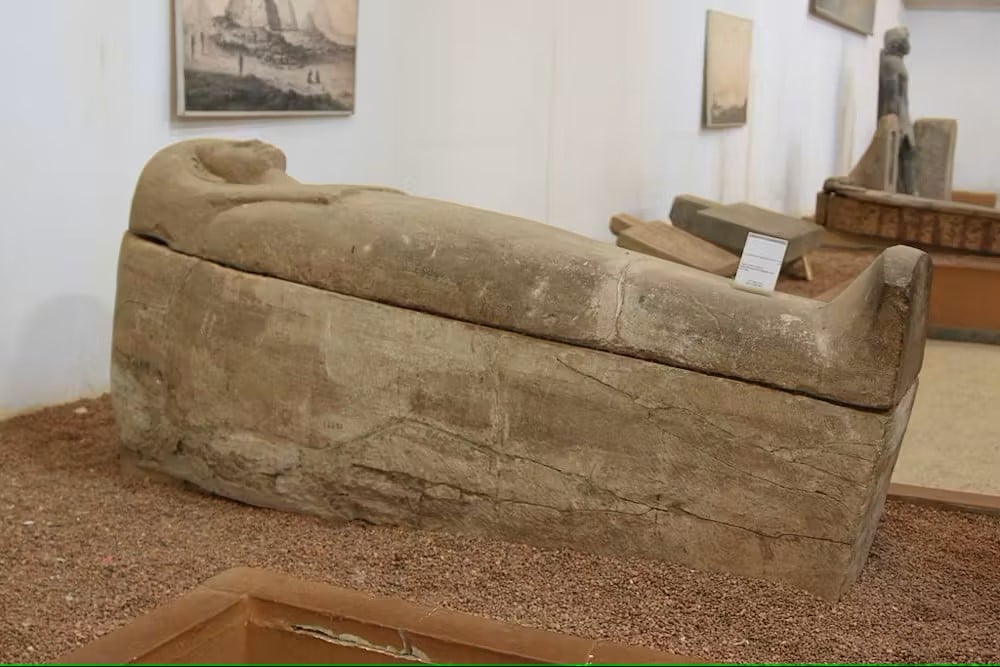
One of the mummies on display at the National Museum of Sudan. Photo: Wikipedia
The museum is located in Al-Muqran, named after the confluence of the White and Blue Nile rivers in Khartoum, and nearby are dozens of important museums and cultural heritage centers, such as the Ethnographic Museum and the National History Museum. All of them have been violated and many priceless items have been destroyed.
The Sudan Heritage Protection Initiative (SHPI), which has been tracking the destruction of monuments and universities that house research and cultural centers with ancient manuscripts and books in Sudan, said cultural centers in many parts of Khartoum have been looted and damaged.
Across Sudan, museums and artifacts are being destroyed and looted amid a dire humanitarian crisis - more than 10 million people are displaced and half the country's 50 million people are facing famine.
“The threat to this culture appears to have reached unprecedented levels, with reports of looting targeting museums, heritage sites, archaeological sites and private collections,” said UNESCO, the UN cultural agency.
The loss is not just physical; it has profound implications for the collective memory and spirit of generations of Sudanese. “Even if peace were restored immediately, we would have to rebuild some of our historical sites,” said Schluter.
Nguyen Khanh
Source: https://www.congluan.vn/noi-chien-sudan-dang-huy-hoai-cac-di-san-unesco-vo-gia-post313586.html




![[Photo] Cutting hills to make way for people to travel on route 14E that suffered landslides](https://vphoto.vietnam.vn/thumb/1200x675/vietnam/resource/IMAGE/2025/11/08/1762599969318_ndo_br_thiet-ke-chua-co-ten-2025-11-08t154639923-png.webp)





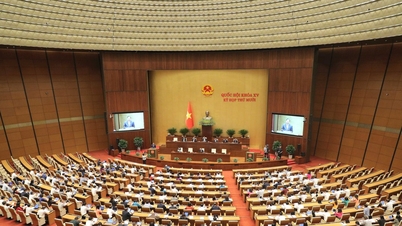




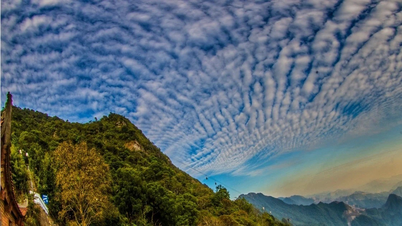

















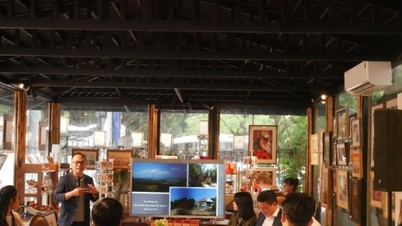



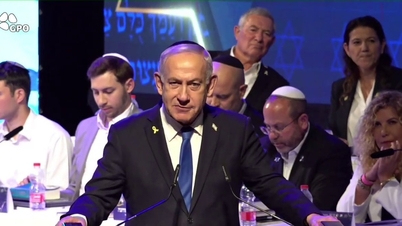
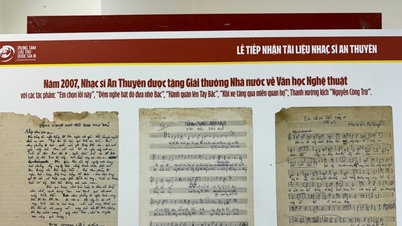







![[Video] Hue Monuments reopen to welcome visitors](https://vphoto.vietnam.vn/thumb/402x226/vietnam/resource/IMAGE/2025/11/05/1762301089171_dung01-05-43-09still013-jpg.webp)













































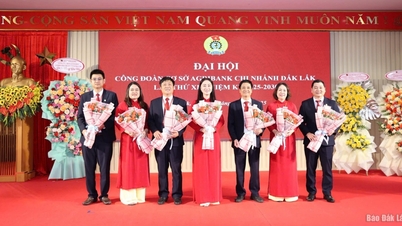

















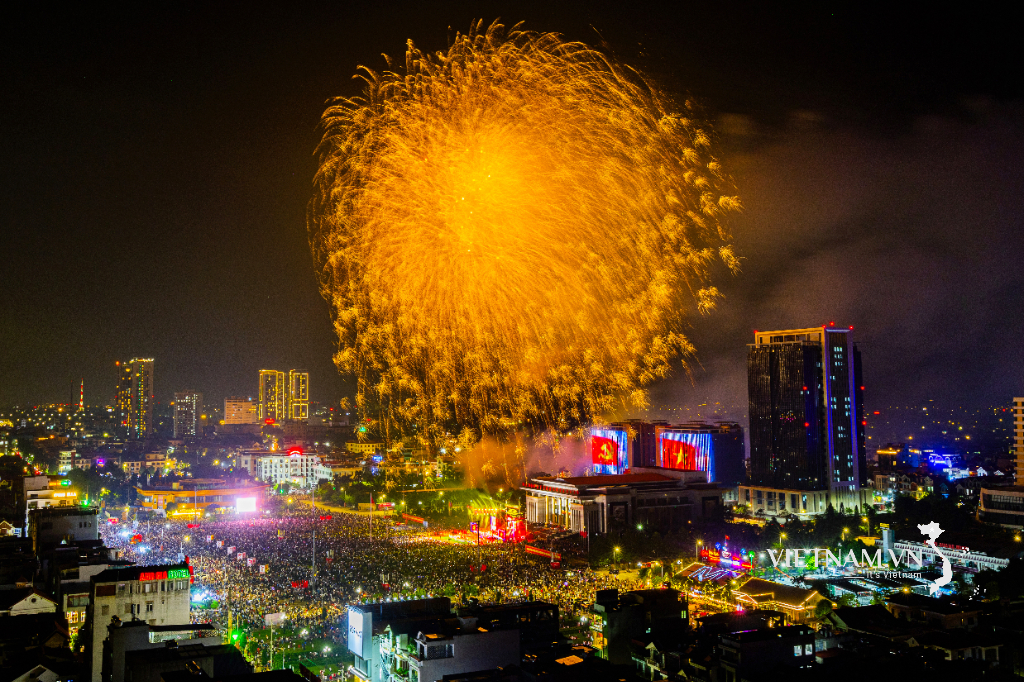


Comment (0)